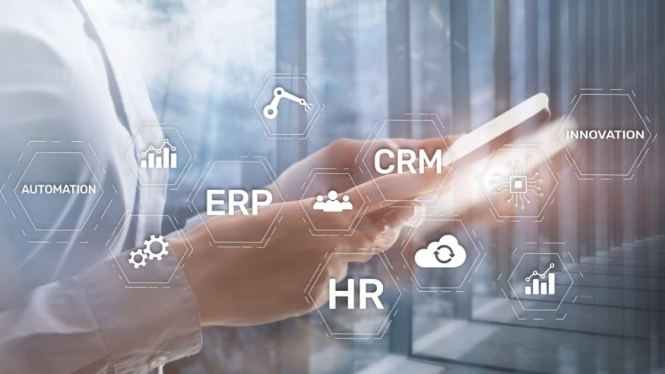ERP and Customer Relationship Management (CRM)?

Integrating ERP and CRM systems can have a transformative impact on businesses. This integration improves data sharing, allowing for a more comprehensive view of customer interactions and transactions. It also streamlines business processes, enhancing efficiency and reducing duplication of effort. With better customer insights and synchronized operations, organizations can provide more personalized services and experiences, ultimately strengthening customer relationships and driving growth.
When it comes to choosing the right ERP solution for your business, several crucial factors need consideration. Industries have unique requirements, and it’s vital to find a system that aligns with your specific needs. Scalability is another key aspect. Your chosen ERP should be flexible enough to grow with your business. Budget constraints are also significant, so understanding the costs associated with implementation and maintenance is essential.
Leveraging CRM software effectively can significantly boost your sales and marketing efforts. The ability to manage leads, segment your customer base, and create highly targeted marketing campaigns can result in higher conversion rates and increased revenue. By harnessing the power of customer data, you can engage with your audience in a more personalized and relevant way, improving customer satisfaction and loyalty.
CRM systems play a pivotal role in enhancing customer loyalty. Through efficient communication and personalized experiences, businesses can build stronger relationships with their customers. CRM software facilitates effective follow-ups, ensuring that customer needs and expectations are met. This approach not only boosts customer retention but also generates positive word-of-mouth referrals.
Measuring the return on investment (ROI) of ERP implementation is essential for businesses. Implementing an ERP system can lead to increased productivity, significant cost savings, and improved data accuracy. By automating tasks and providing real-time data, businesses can operate more efficiently and effectively.
Employee productivity is a critical aspect of any business operation. ERP systems can improve employee efficiency by automating routine tasks, reducing manual work, and providing real-time data and insights. With less time spent on administrative tasks, employees can focus on strategic activities and decision-making, contributing to overall business growth.
Data security in CRM systems is a paramount concern, especially in an age where data breaches are frequent. CRM software should incorporate robust security measures to protect customer information. Compliance with data protection regulations, data encryption, and regular security audits are essential to maintain the trust of your customers and ensure the security of their data.
Efficient inventory management is a key element of ERP systems, offering real-time data on stock levels, demand forecasting, and order tracking. With accurate inventory information, businesses can optimize stock levels, reduce carrying costs, and minimize the risk of stockouts or overstocking. This level of control and visibility can result in substantial cost savings and improved customer satisfaction.
Cloud-based ERP solutions have gained prominence for their scalability, flexibility, and accessibility. Cloud ERP allows businesses to adapt to changing needs, seamlessly integrate new functionalities, and access data from anywhere, enabling remote work and enhanced collaboration.
The significance of mobile CRM applications in modern business cannot be overstated. These apps empower sales and support teams to access customer data and manage interactions on the go, improving responsiveness and providing a more seamless customer experience.

Interested in what Infinium Suite can do for you?
Links
Contact Us
- +8801714-042726
- info@infiniumsuite.com
- Morning Glory, Concord Colosseum, House# 19 Road No 13C, Dhaka 1213
